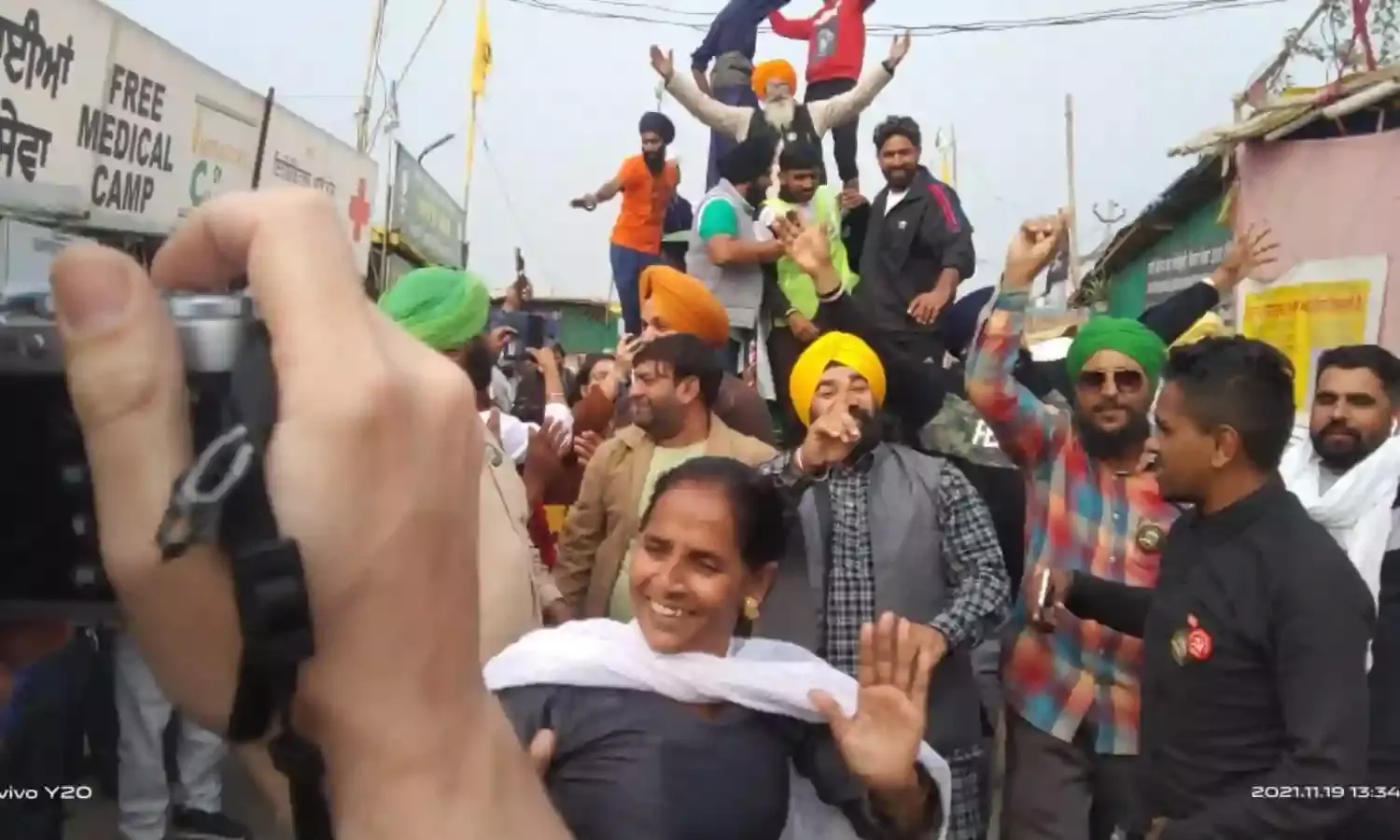Historic Struggle - Farmers In The Lead
Biggest struggle since independence

Prime Minister Narendra Modi has done, on the eve of UP and other state elections, what he could have a year ago and earned tremendous goodwill in the process - repealed the three farm laws. If the farmers' voices had been heard and their determination understood, 750 farmers might not have died, and the polarisation between India's proud farming community and the government and its supporters averted.
That the PM has done so now is not being seen as strength but a gesture arising out of weakness, with an eye on the polls. The victory is bittersweet for the farmers who have lost their own to the one year old struggle, faced water canons and lathis, been mowed down and attacked in places such as Lakhimpur Kheri, been arrested and detained, been trolled and been attacked by the media as anti national, khalistani with no adjective too vile to be used against them by the captive media.
Unlike many communities, the farmers have a memory and the first responses from the leaders encapsulated all of the above and more. Opposition leaders have also come out with strong statements against the government, and questioning what they describe as an 'election stunt.' Of course election stunts are part of democracy, and often an occasion for politicians kowtowing to the wishes of their people to win the elections but not if the water under the bridge has turned into a flood.
A flood as the government used every possible measure to contain the farmers, and break the back of the movement --- from initial talks that just underlined the government's obstinacy to approaching the courts for action. The unity of the farmers did not break, the movement expanded, and with time the Samyukta Kisan Morcha -- a conglomerate of farmer leaders and organisations -- became stronger and more united if that was possible. Even after the announcement the farmers at Delhi's borders and in their homes waited for direction from the Morcha, before even expressing their views on the PM's announcement.
The farmers have been asked to continue with the stir and in a politically nuanced approach the Morcha has made three points articulated through its statement, and important leaders like Rakesh Tikait. One, Parliament has to endorse the repeal ' "PM take it to Parliament first"; two, give a guarantee for MSP that affects all farmers; sangharsh will continue, no rush to distribute sweets.
The government has been the first to blink, and actually give in, in what had become an eyeball to eyeball confrontation between the executive and India's large farming community. The continuous multi-pronged attack on the farmers was designed to divide them through fear and terror, to break the back of the movement, but over these 12 months it has established itself as indeed a historic movement for the world to learn from.
The manner in which the farmer leaders have guided the movement, the methodology, the response has been breathtaking. The farmers came out in spontaneous protest, but the organisations followed immediately to take control, and ensure not just unity but discipline. The young and the old, the men and the women, the rich and the poorer farmers, all came together to non-violently protest against the measures and demand their rights. All efforts by the government came to nought as the farmers remained steadfast on the one point, roll back the farm laws and guarantee MSP.
The media started blacking out the stir, and then became aggressive calling the farmers names and dubbing them anti national. The anger and frustration led the Sikh youth to start their own channels, their own media with Trolley Times being a precursor. The farmers moved to occupy the social media, beating back allegations with videos and clips from the ground. The trolls were out to defame and humiliate them but despite this the farmers managed an excellent counter offensive from scratch. The 'godi media' was rejected by the farmers community and a new media run by them raised its head.
But the biggest contribution to the nation, for want of another term, has been unity. Farmers unity followed with peoples unity. The farmers reached out to all communities, bridges burnt in western UP were rebuilt as Jats and Muslims and Dalits held hands, and a new environment of harmony was deliberately and assiduously built. This hurt those seeking to divide communities for votes more than perhaps what people realised.
The ruling party members in the states were shunned, and in Haryana even the Chief Minister was prevented by the farmers from holding meetings. It was clear that the politician in power does not understand India's peasants, and completely underestimated their anger and their commitment. The government tried to beat them back, using verbal abuse and physical violence, but instead came up against a wall of non-violence, fortitude, wisdom and sheer perseverance, making this the biggest post-Independence movement in India since.
This could well be a turning point in more ways than one. The struggle is of course not over, but a lot will depend on the turn it takes.
Cover Photograph: Nodeep Kaur, farmers activist at the Singhu border today.



